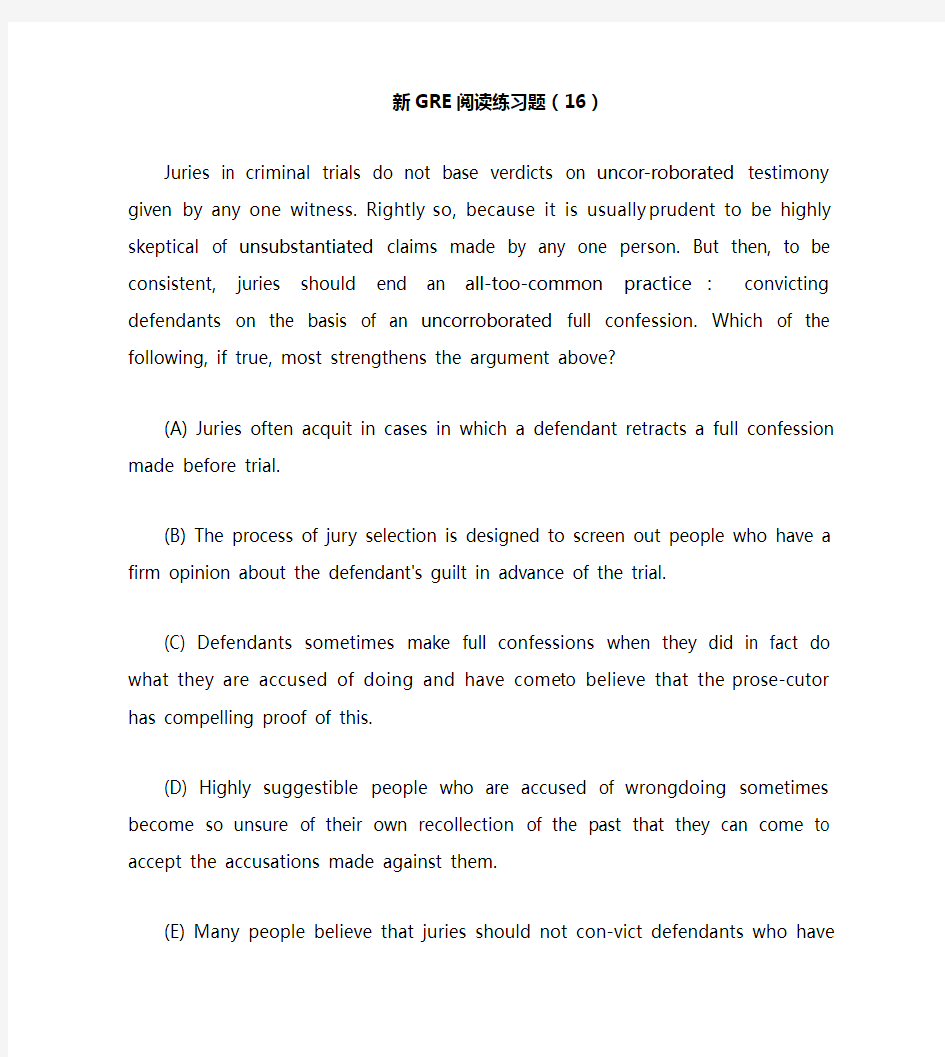新GRE阅读练习题(16)


新GRE阅读练习题(16)
Juries in criminal trials do not base verdicts on uncor-roborated testimony given by any one witness. Rightly so, because it is usually prudent to be highly skeptical of unsubstantiated claims made by any one person. But then, to be consistent, juries should end an all-too-common practice:convicting defendants on the basis of an uncorroborated full confession. Which of the following, if true, most strengthens the argument above?
(A) Juries often acquit in cases in which a defendant retracts a full confession made before trial.
(B) The process of jury selection is designed to screen out people who have a firm opinion about the defendant's
guilt in advance of the trial.
(C) Defendants sometimes make full confessions when they did in fact do what they are accused of doing and have come to believe that the prose-cutor has compelling proof of this.
(D) Highly suggestible people who are accused of wrongdoing sometimes become so unsure of their own recollection of the past that they can come to accept the accusations made against them.
(E) Many people believe that juries should not con-vict defendants who have not made a full con-fession.
答案:E
